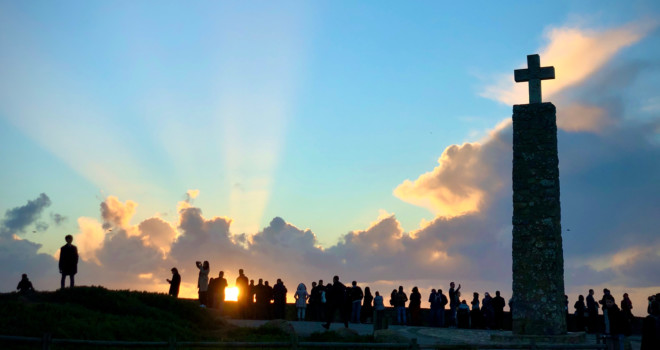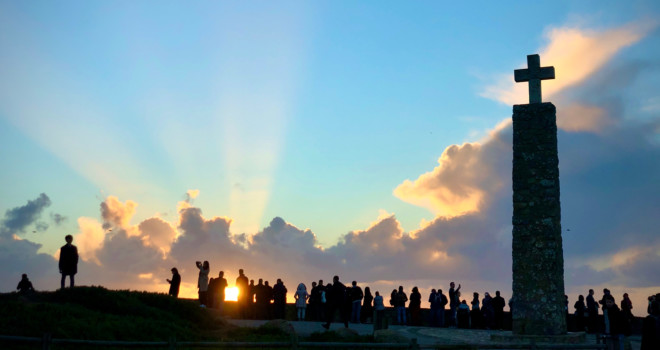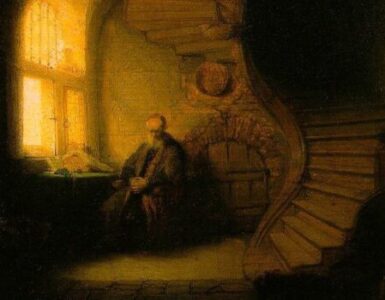The Facts of Life Series: Society, Politics and Citizenship
How strikingly odd are our times? And, how startlingly wrong are our ideas? Just think for a minute about our modern Western world. Think how far the West has progressed in our mastery over our physical needs and limitations. Our overall knowledge base has expanded remarkably over the past two centuries and our collective capacity to use and apply this knowledge has become an expectation, a given, rather than some vague hope. Now, our scientific and technical advance seems only limited by our creativity and our collective will.
Yet, our growing sophistication in these areas has not led us to cultural advances in less tangible, but more crucial areas such as morality and philosophy, in the more collective aspects of life such as government and law, culture and civility or even in life’s more personal aspects such as marriage and parenting, families and friendships. In fact, in all these areas, we have markedly declined. Now, we border on decay, decadence, and depravity across many of our culture’s significant aspects and influences that even reach into our personal lives, our convictions and our freedoms.
Despite our many advances, the erroneous ideas, faulty philosophies and ethical errors undergirding much of Western modernity for the past century have undermined our confidence and our capacity for certainty in these areas. Just as we have grown more scientifically knowledgeable and technologically capable, we have lost the truths of reason and scorned the wisdom of our cultural heritage. We created confusion about life’s more intangible and meaningful aspects, despite our mastery of the tangible world.
And, we have embraced a form of arrogant ignorance and dogmatic doubt by deliberately denying the ready availability of rational metaphysical and moral truths, in spite of our profound human need for meaning and purpose, hope and love. Our ignorance, our confusion and our modern sense of life’s absurdity is deliberate and self-inflicted, an intentional error of existential proportions, a suicide of thought and reason, a rejection of truth’s certainty and morality’s clarity.
For we no longer think clearly, rigorously, rationally. And we no longer understand the innate harmony between our minds and our emotions, our heads and our hearts. Nor do we grasp the relational and moral essence of love with each other, let alone with God. For our modern advances have alienated us from ourselves, from each other and from Him.
Much of this overall modern morass arises from faulty ideas denying the very idea of transcendent truth, the very possibility of metaphysical and moral truths. In their stead, Western modernity offers the arrogant assertion of personally and collectively determined truth, the exaggeration of the power of personal perception and the distortion of collectivist conformity’s control and censure.
These implicit insidious ideas arise from the persistent influence of modernity’s intellectual elite that have subverted reason, commonsense and our intuitive and instinctive truths. These same elites now remand us to a tyrannical intellectual conformity arising from existential relativism and a dystopic vision, whose idea of perfection is deeply depraved and dangerously dictatorial. These insidious influences and ideas have even infected some in the Church’s leadership, clergy and its laity.
And, it has affected our political principles and ideas, our policies and programs, even our political and personal affiliations. For politics is rarely a source of ideas. But it is inevitably a crucial sphere where foundational philosophical and religious ideas prominent in our culture make their presence felt or find direct application. These distorted and dangerous ideas pervert our government’s guiding principles and its policies. This reality is as reliable and as certain as gravity. When culture alters its basic beliefs, politics changes. For “politics is downstream from culture.”
But, culture is “downstream” too. For the headwaters of all of life are always philosophy and religion. For these two related realms are where any and all of the guiding ideas behind our cultural and political positions are articulated and scrutinized, regardless of any given political persuasion or affiliation. Philosophy and religion are the two crucial, foundational and unavoidable areas, where any remotely significant belief or idea first meet the dual demands inherent in the process of thorough articulation and rigorous critique.
Now, for Catholics, this should be good news. For the Catholic worldview is grounded in reason and revelation. And, reason is the primary method of philosophy, how philosophy’s truths are deduced and proven. Philosophy asserts the importance of the mind of God, just as our religion deals with the revelations of God and His historical intervention, the Incarnation. The distinctive harmony of Catholic orthodoxy, its philosophy and theology, form the essence and substance of our worldview, the foundation of our particular cultural variants and political positions.
And for us, Catholic orthodoxy is our authoritative guide. Where orthodoxy is definitive, we are obligated to understand and adhere to these truths, personally, culturally, politically. Where orthodoxy is more complex, we are obligated to adhere to a given position within the strictures of approved alternatives in these same spheres. In short, our political involvement, opinions and activity must embrace the fullness and integration of the whole of our orthodoxy.
This does not mean we should not think for ourselves or have personal political opinions. But, it does mean we should think carefully and thoroughly about political issues. And, our thinking should be informed by faithfully and rigorously consulting Church teaching on a given issue or on the salient principles that bear upon such issues. This is of particular importance given the contradictory and faulty ideas espoused by some priests and bishops and even popes. For modernity’s inroads in the Church are blatant, but also subtle.
As Catholics, orthodoxy is the fruit of philosophy and theology. These are the foundational disciplines of our particular approach to living and even our citizenship, our political thinking and activity. Orthodoxy spells out crucial aspects of living and political engagement. Our morality and ethics, our individual freedom and its proper and improper uses and the obligations and benefits of our relational rectitude of all types is properly informed and guided by our orthodoxy.
Consider the breadth and depth of Catholic orthodoxy. Then, think of the primary principles of our nation’s assertion of its independence. Look at the wording and ideas encompassed by this brief, but profound and clear philosophic statement of truths and its brief reference to a “Creator”, who endows these rights.
“We hold these truths to be self-evident, that all men are created equal, that they are endowed by their Creator with certain unalienable Rights, that among these are Life, Liberty and the pursuit of Happiness. — That to secure these rights, Governments are instituted among Men …”
Clearly, the Founders’ appeal was to philosophic truths and religious beliefs. Notice how this statement assumes cultural certainties that were common and commonsensical givens, but grounded in philosophical and religious truths of a basic and a comprehensive nature. For the two primary truths here are that “all men are created equal” and that “they are endowed with certain inalienable rights.” And, while it lists three of these rights, it makes clear there are other rights we receive through the Creator’s action.
The idea of basic rights were and are a given fact, a practical philosophical and theological truth, as were all the other particular rights inherent in human nature and in the attributes of our human condition. These rights were not just empowering and ennobling. They obligate and regulate our interactions and endeavors. They were and are moral principles and moral obligations. For the mere mutuality of human rights compels a universal concern for every person’s rights properly used, as well. For as our Founders understood and John Milton, so succinctly expressed “Only good men can love freedom. The rest love not freedom, but license.”
As Catholics, this summary statement of truths about human nature and God, culture and governance, takes a far more encompassing and immediate meaning. For we bring the fullness of our Faith’s rights and responsibilities, its virtues and its truths to our understanding of our Founders’ simple, yet profound statement. For the “Creator” God of our particular faith defines these endowed rights in very encompassing terms. For each individual Catholic inherits deep, relational and rational motives about truth and love in their most comprehensive and personal sense. For we are commanded “to love our neighbors as ourselves” not as a mere adage, but as a commanded obligation and as a compelling conviction.
In light of our orthodoxy and our convictions, consider any highly contentious issue in our current political discourse. Or, take a moment and think about some primary principle that is or should be a cultural and political given. You will quickly and surely notice, as you ponder that issue, that despite its generality and universality, it is still implicitly a source of sharp disagreement in our nation and in our public lives. That is because philosophy and religion are inherently and inextricably tied up in any and every idea, belief, policy and program you may imagine or encounter.
For instance, think of the meaning of the word “liberty,” what we so often refer to as “freedom.” Is freedom unrestricted? Does freedom know any limits? And what might those limits be? Well, as you think about this idea, you quickly will discover that freedom has boundaries, restrictions, limits, even consequences.
And, to what do you attribute such limits? Are such limits based on the effects freedom creates? Are there uses of freedom that are inherently wrong regardless of their effects or lack thereof? Are there uses of personal freedom that are inherently corrupt or evil or wrong regardless of any deleterious effects, seen or unseen?
Can you see how even with a brief degree of critical and practical reflection the idea of freedom leads to questions of right and wrong, as well as to a host of societal, legal, moral and personal implications and effects? And, all this is rationally and practically, morally, culturally and politically significant because its real significance derives from the innate significance of philosophy and religion. And, what is even more important, it is unavoidable so.
This is why the facts of our Faith are germane to any and every political or cultural discussion and disagreement we encounter or consider. This is why the facts of our Faith significantly bear on any and every political and cultural question of our day. This is why, as Jesus’s disciples, God’s sons and daughters, we must play a significant role in our political and cultural processes.
But, we must do so in accord with our full orthodoxy, holding fast to its truths and embodying them with clarity, courage and compassion. And we must do so regularly and rationally, relentlessly and lovingly, just as God does with us.
✠
This article is part of an extended series on the “The Facts of Life” by F. X. Cronin. You can start with part one by clicking here and see previous entries by clicking here.
We also recommend Mr. Cronin’s latest book, The World According to God: The Whole Truth About Life and Living. It is available from your favorite bookstore and through Sophia Institute Press.
image: Fibonacci / Shutterstock.com












